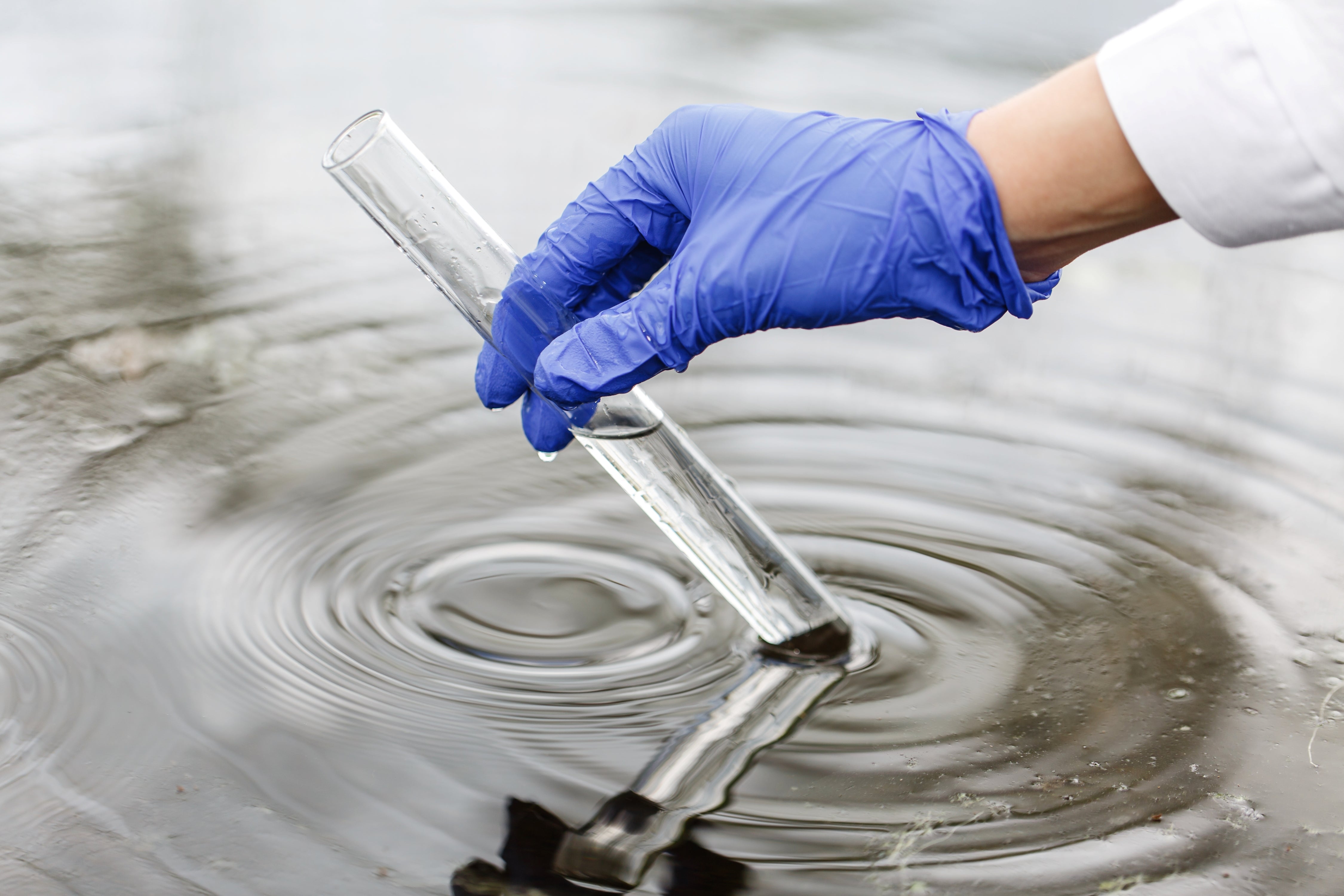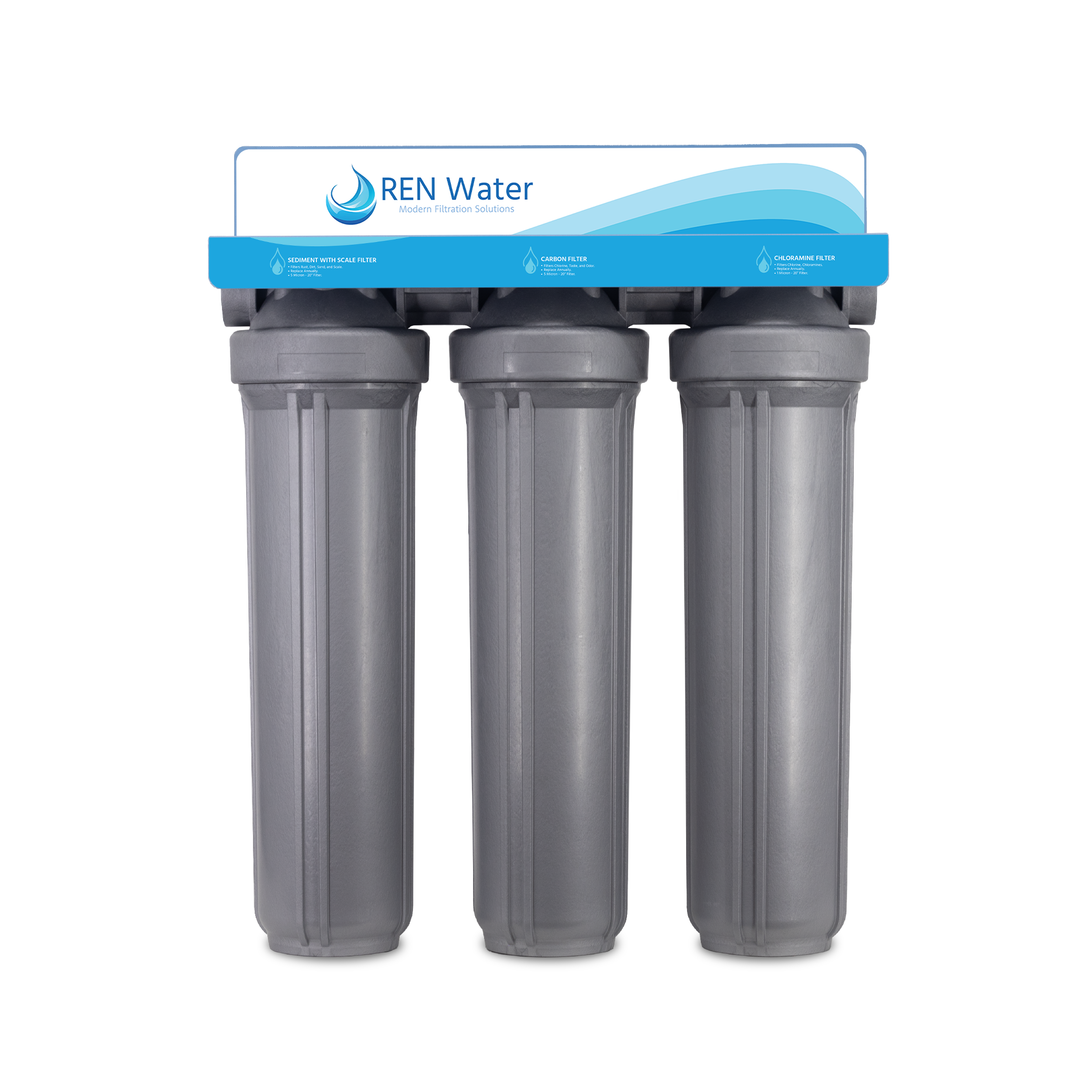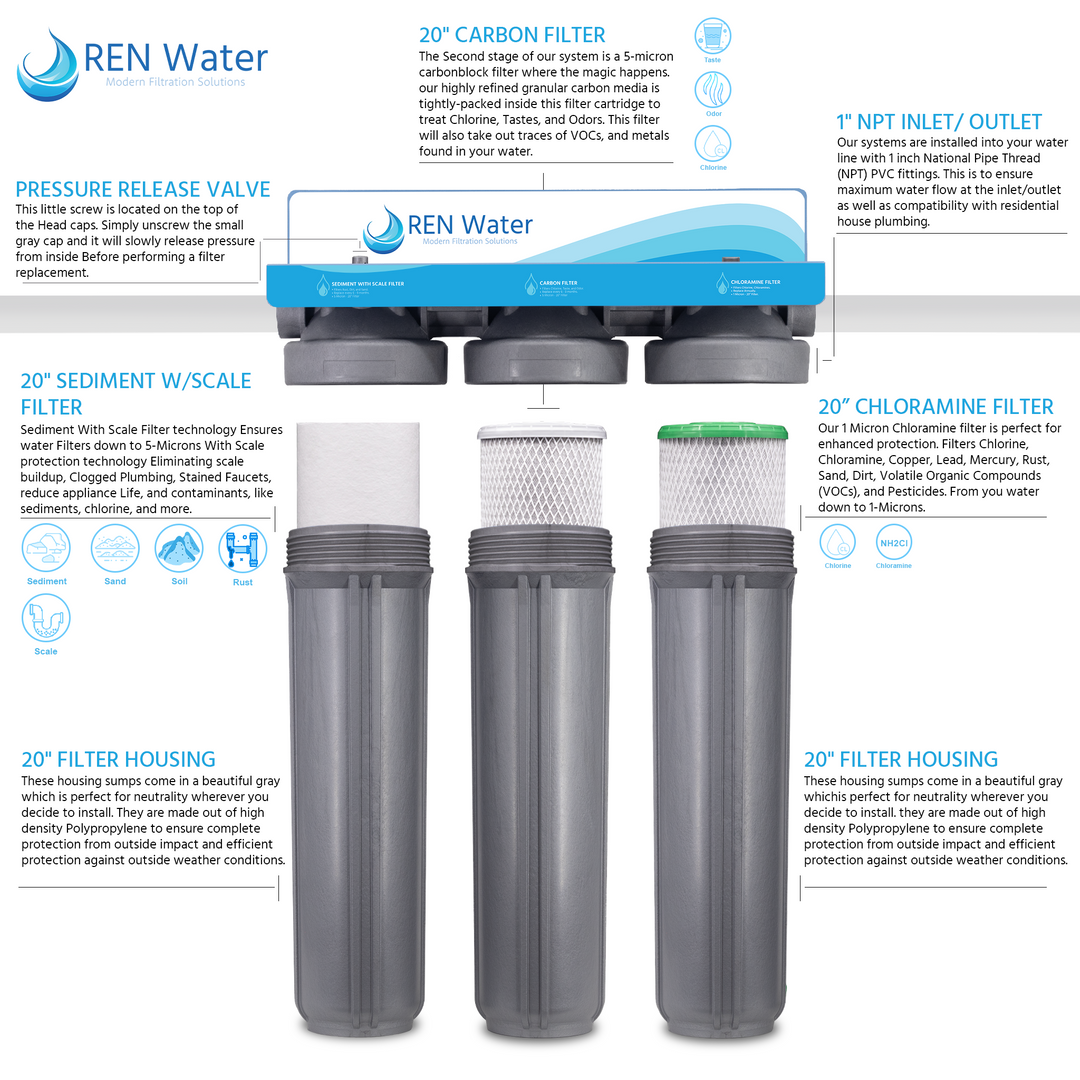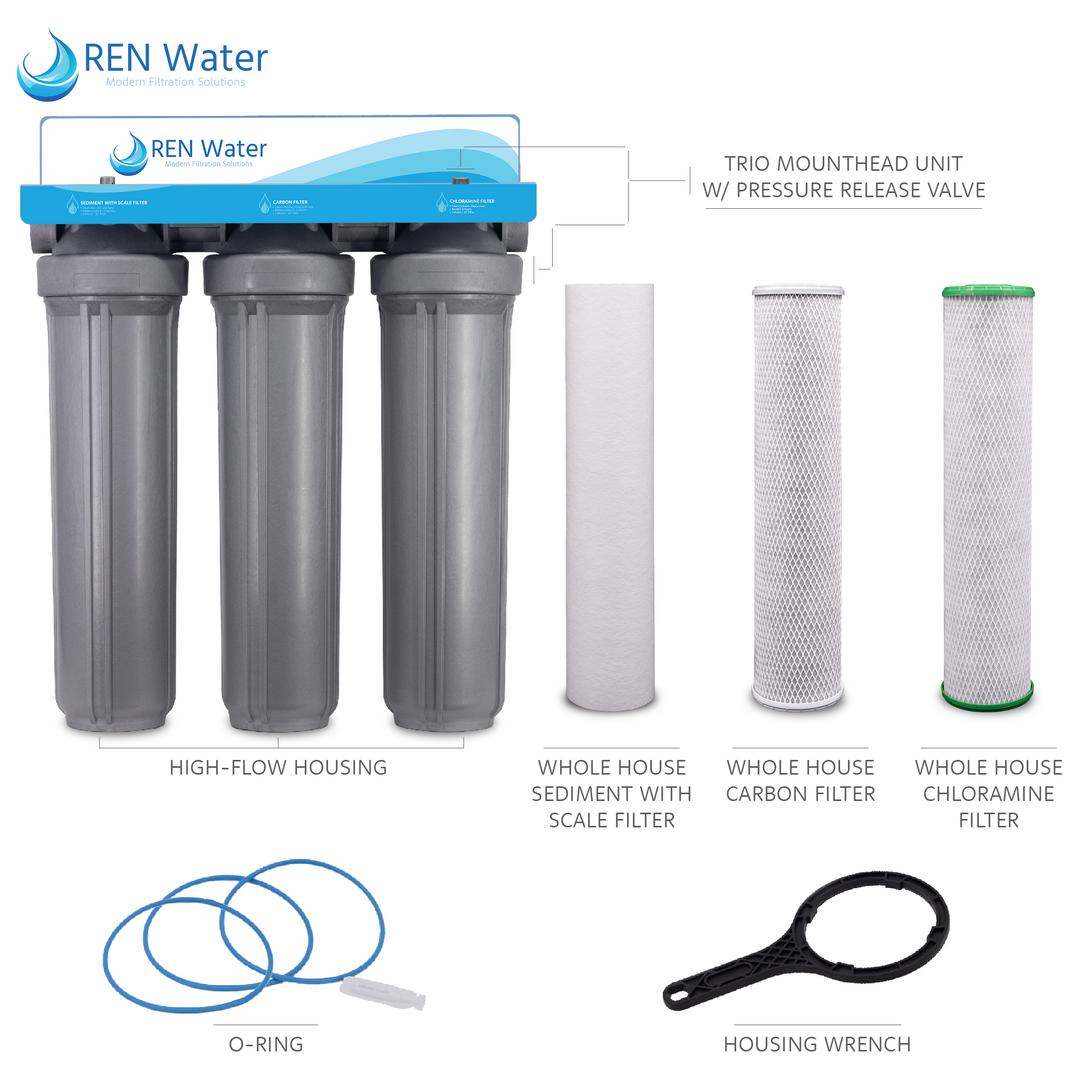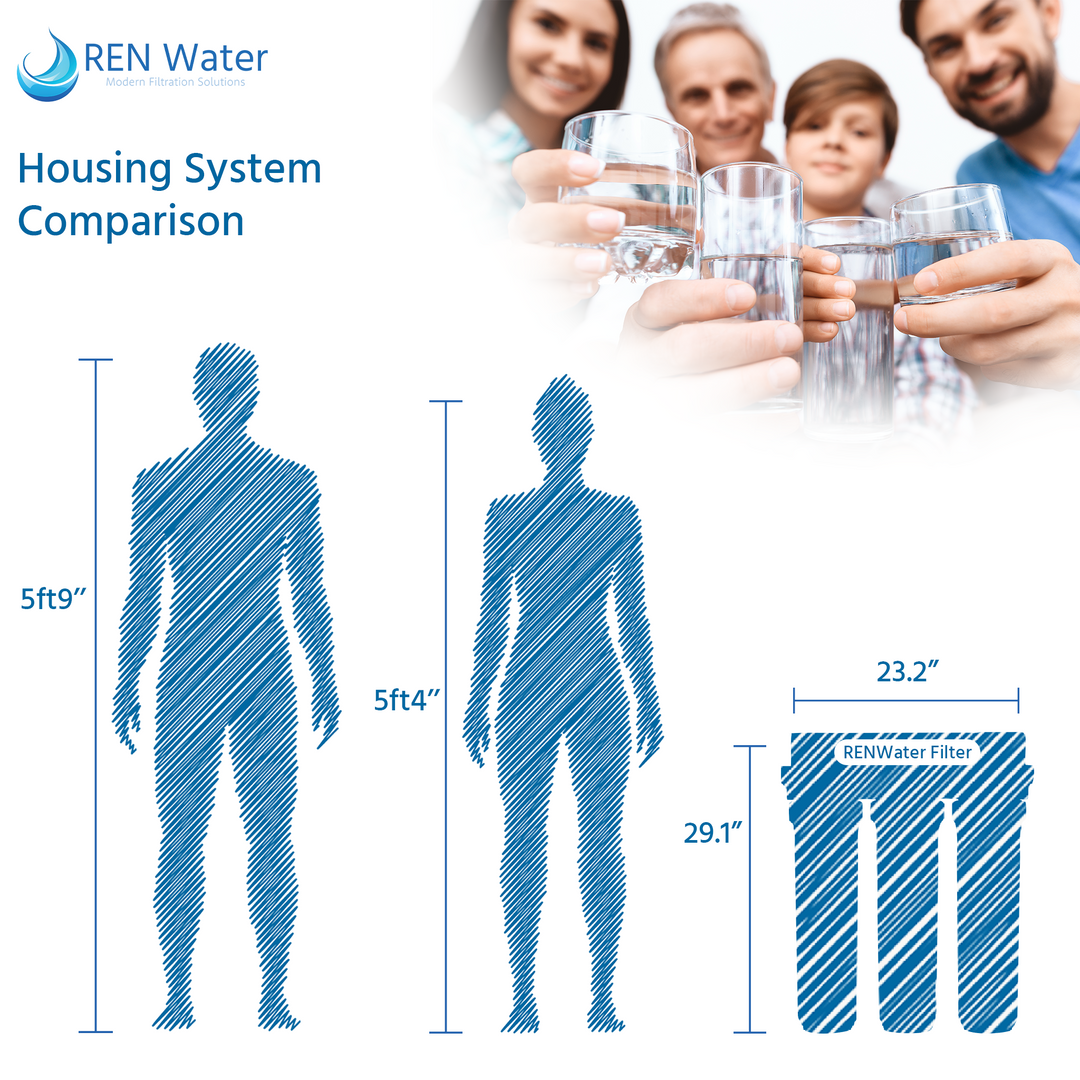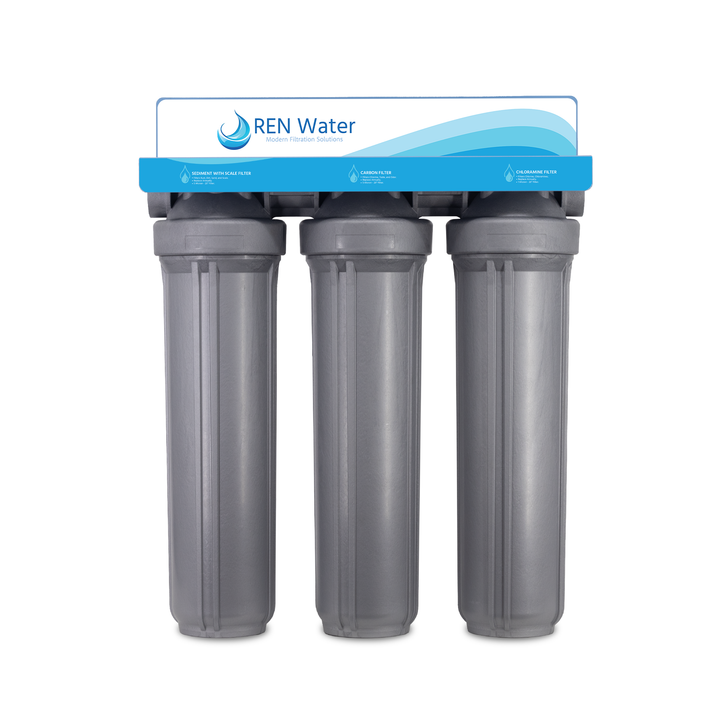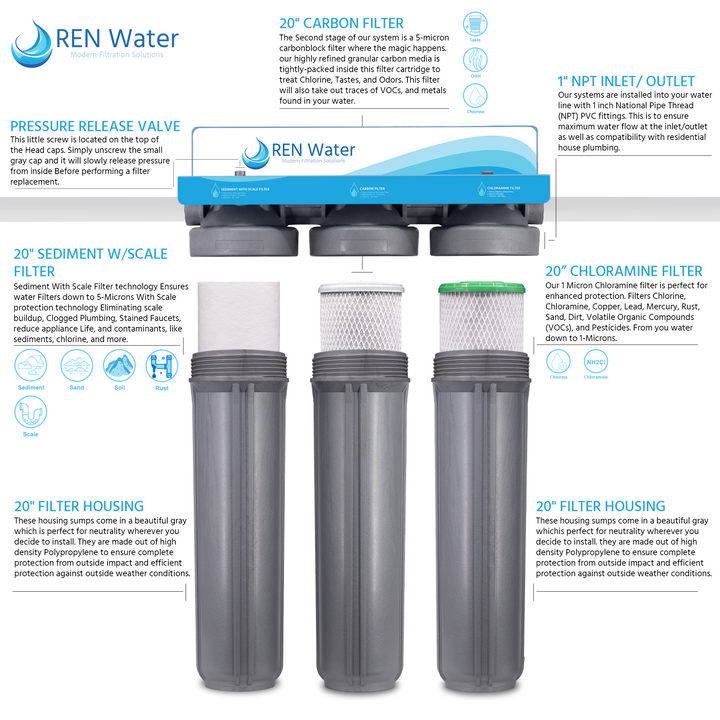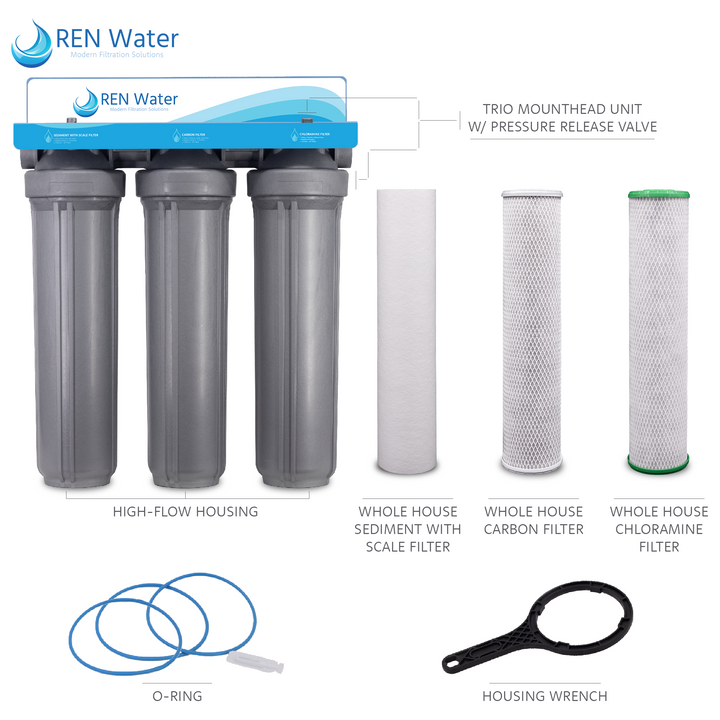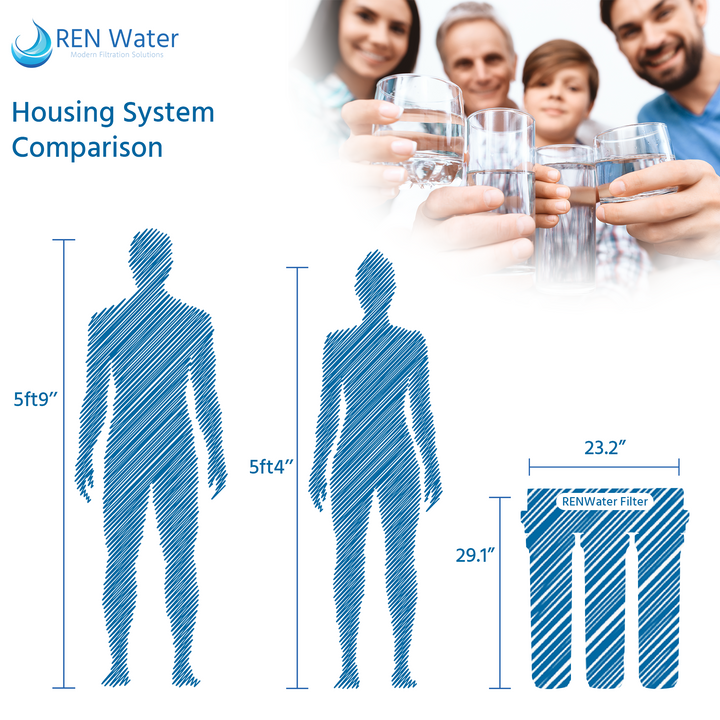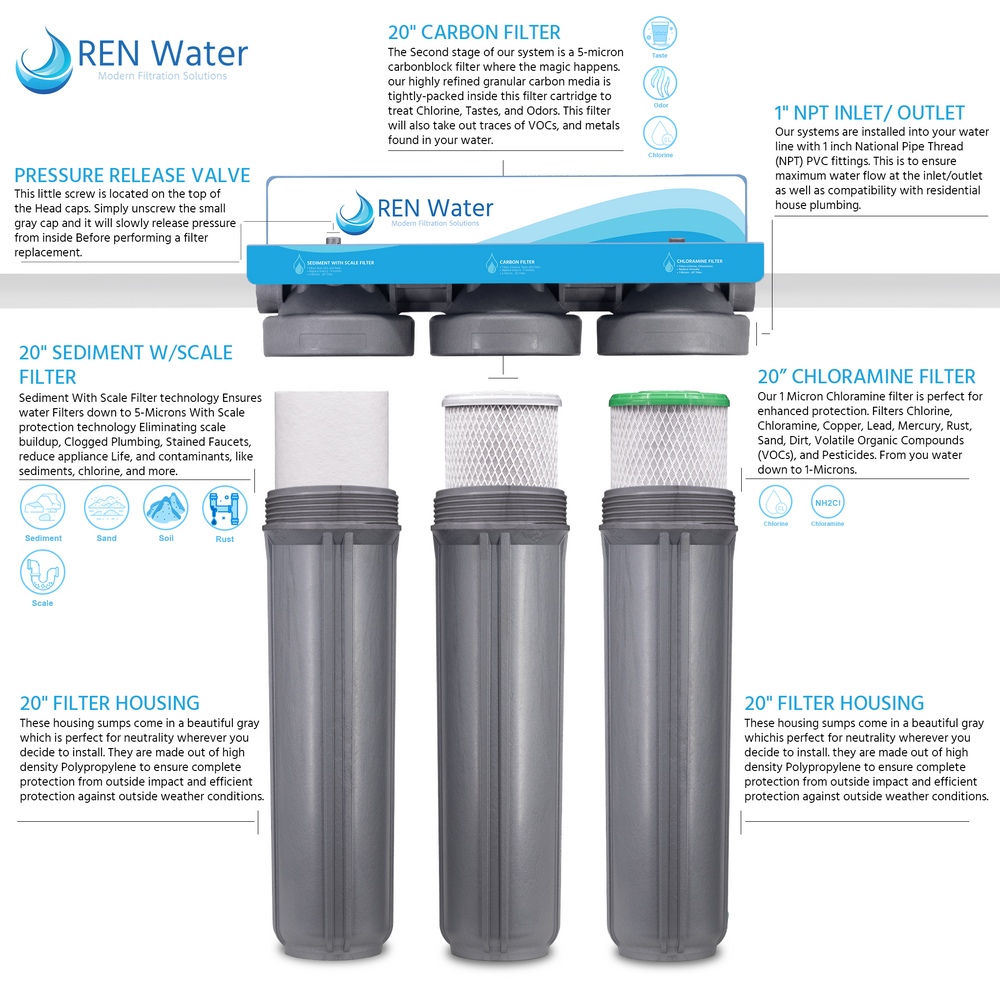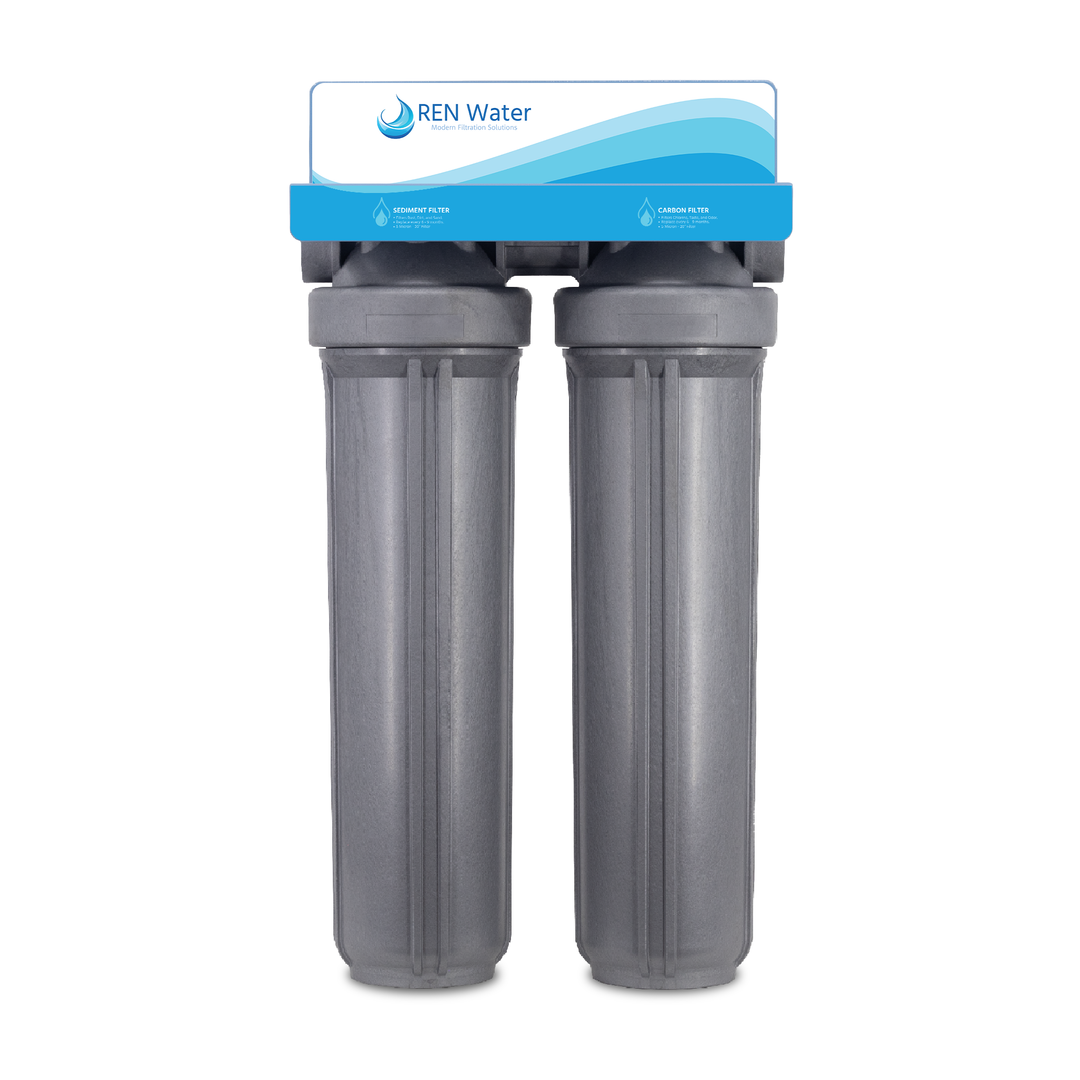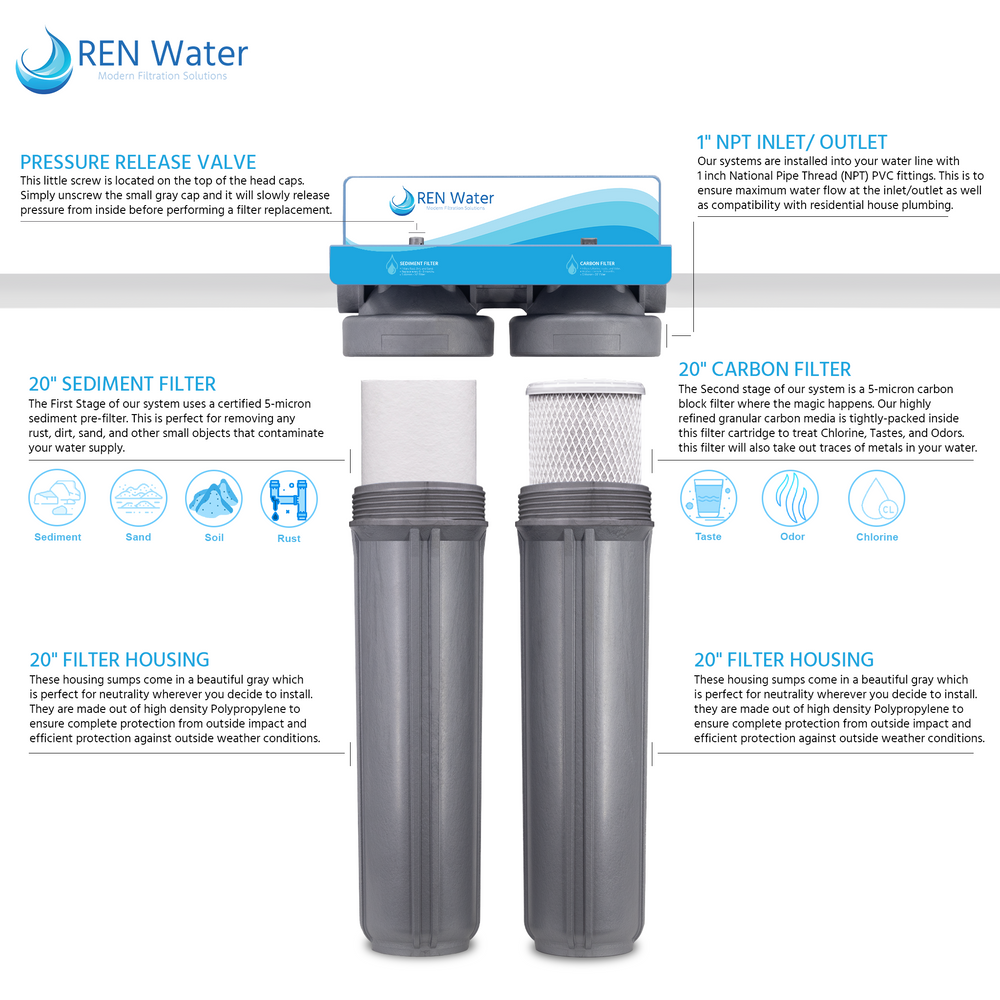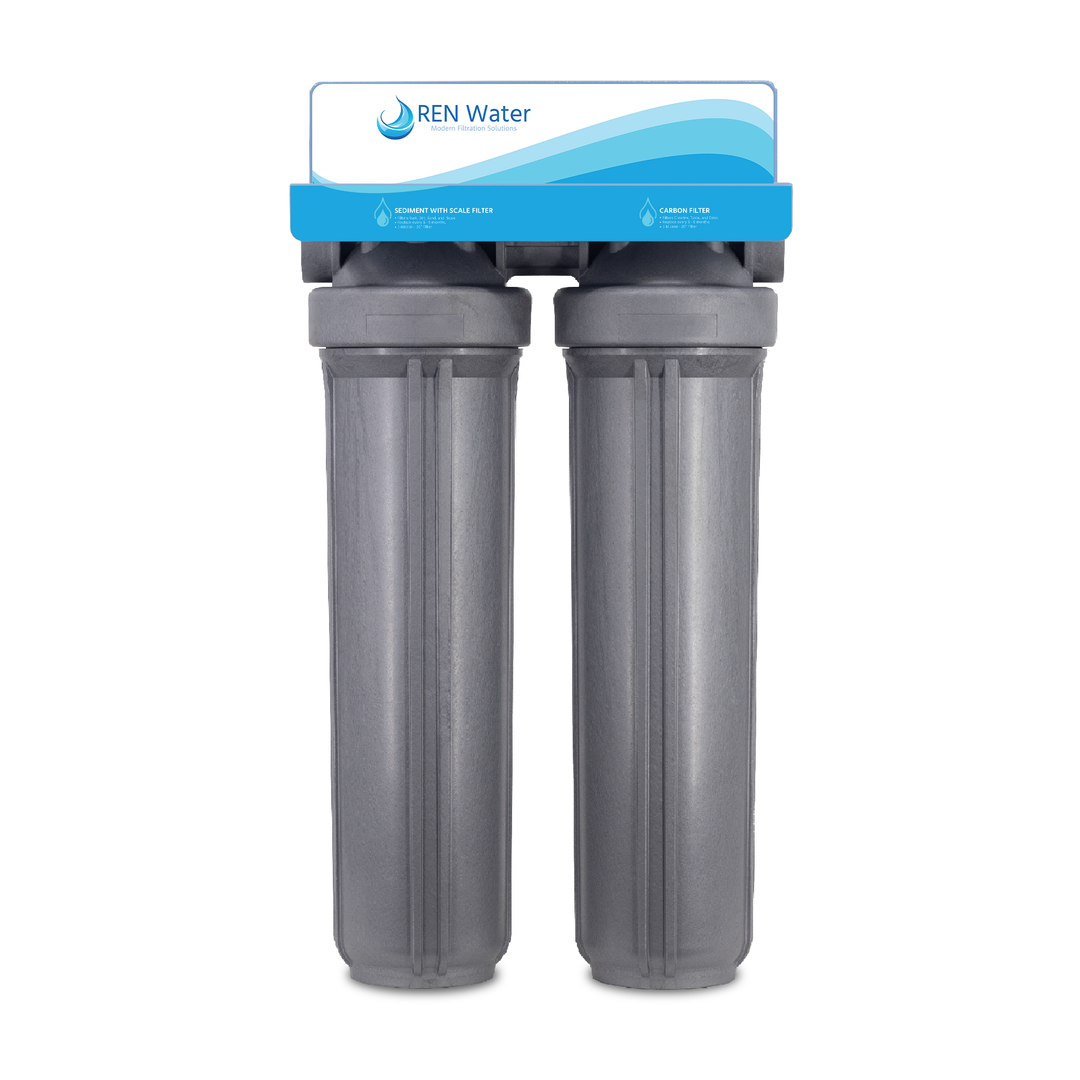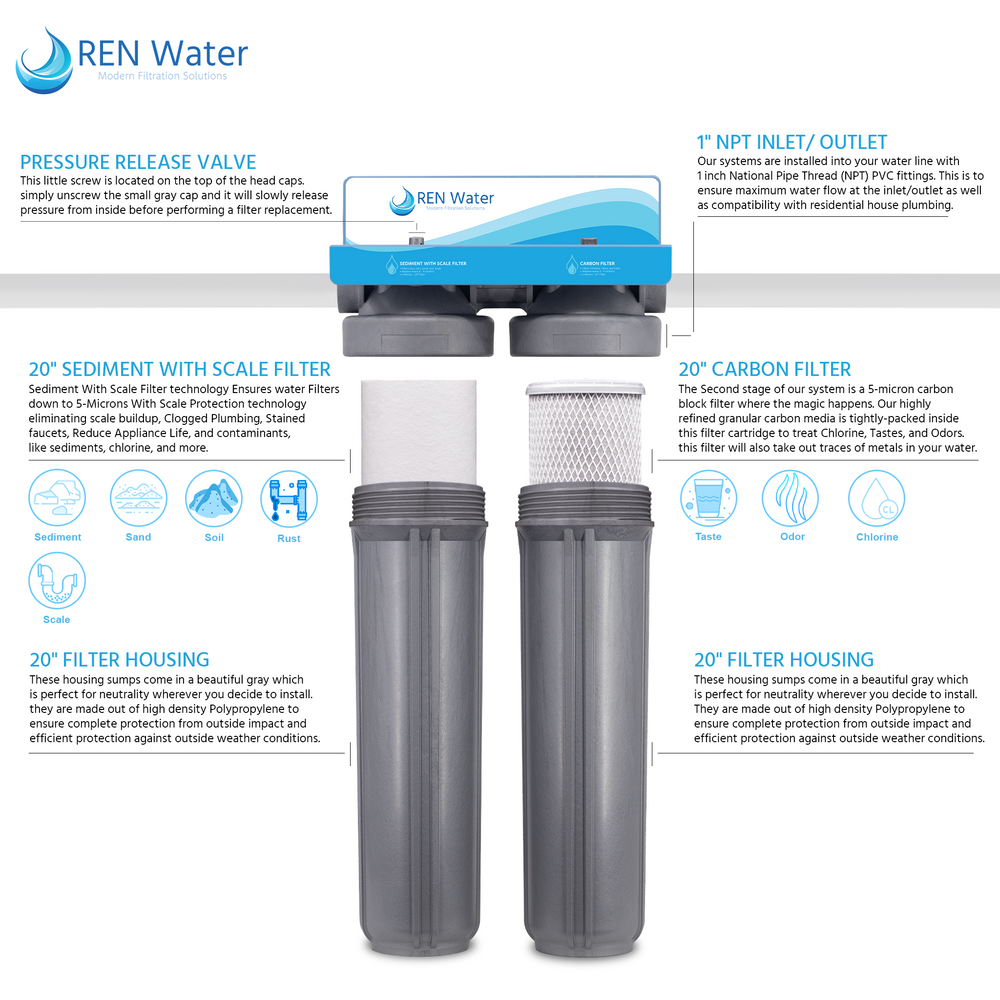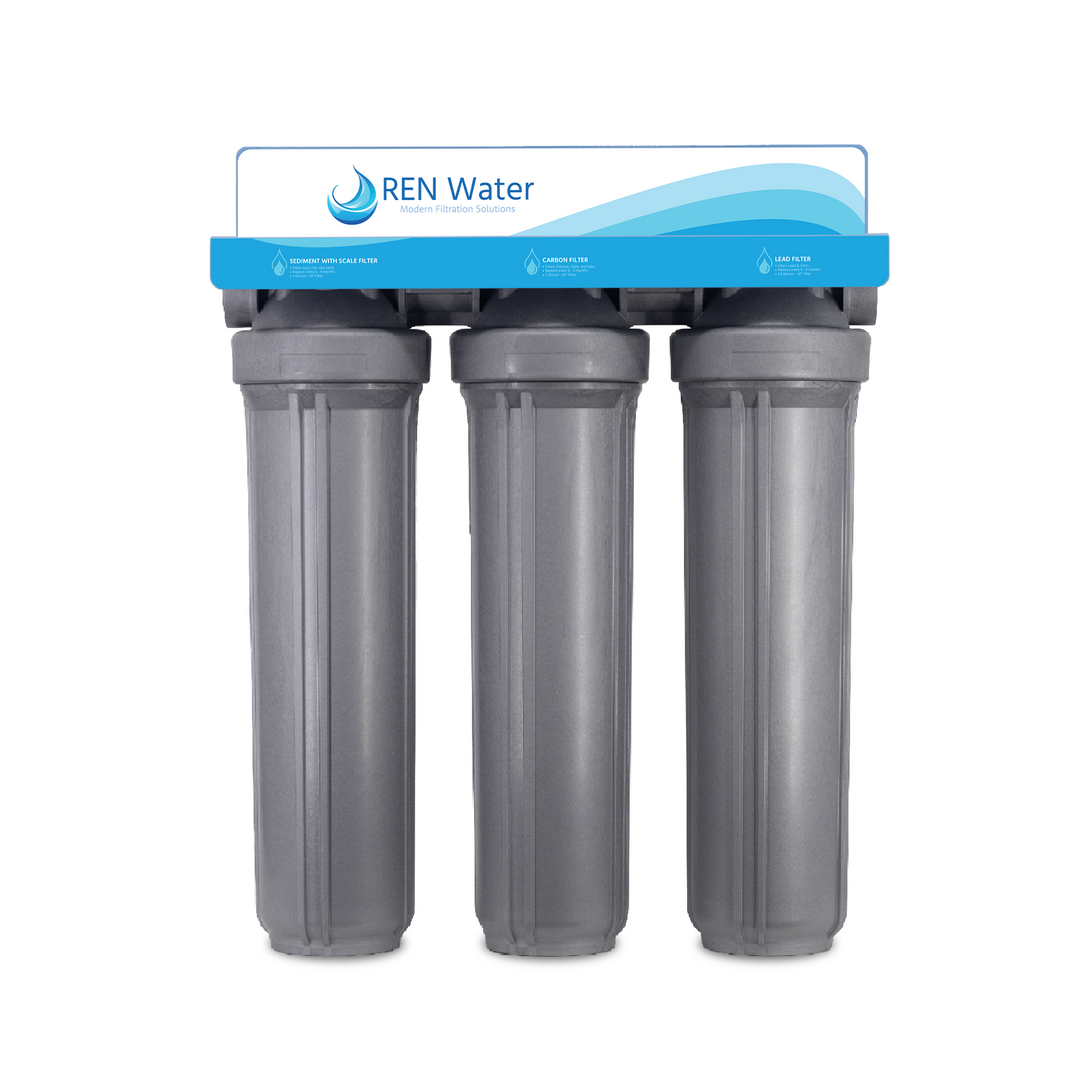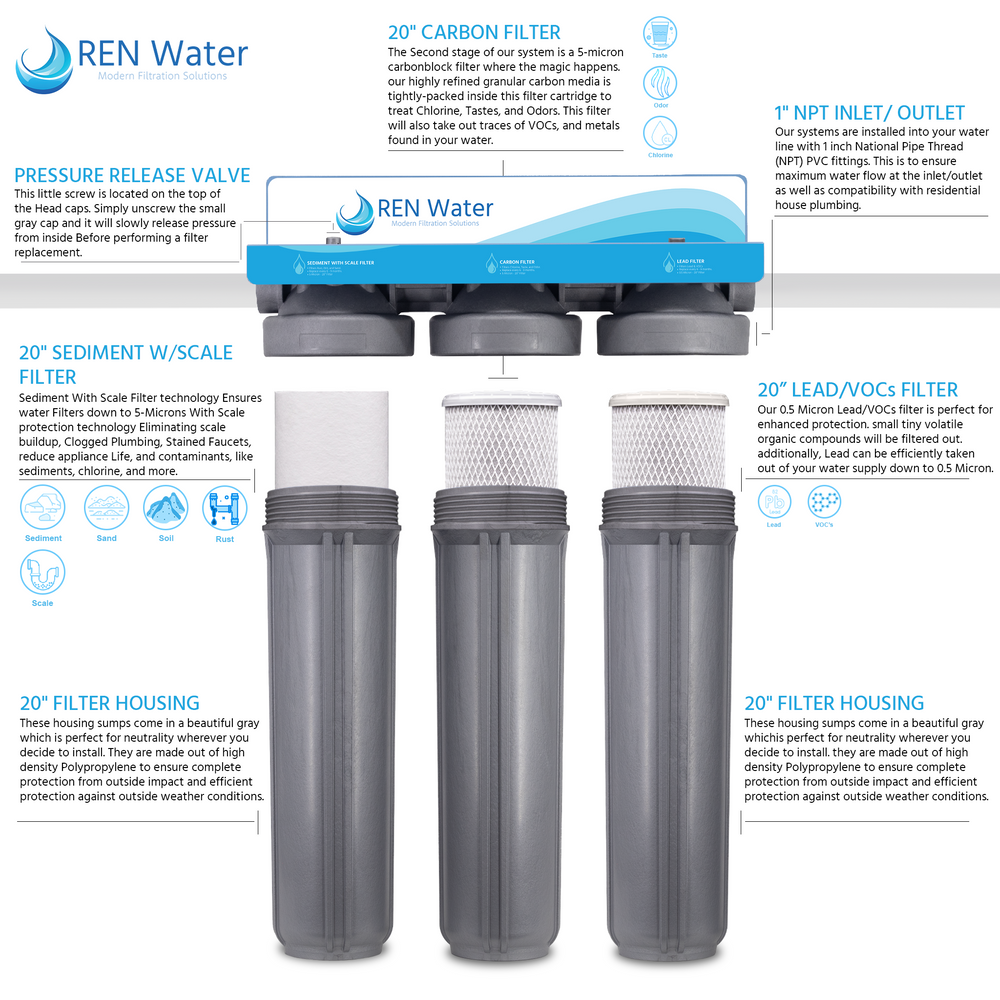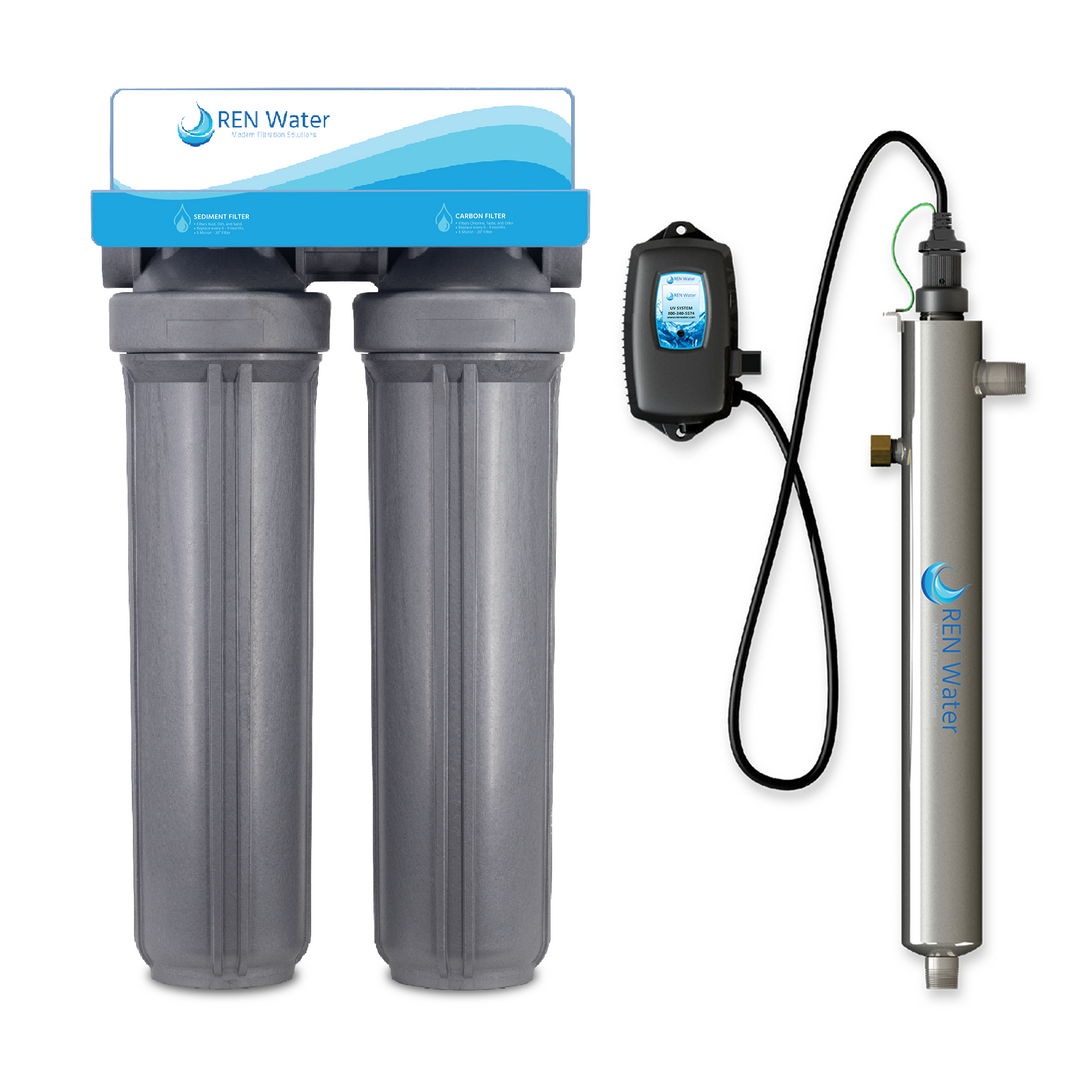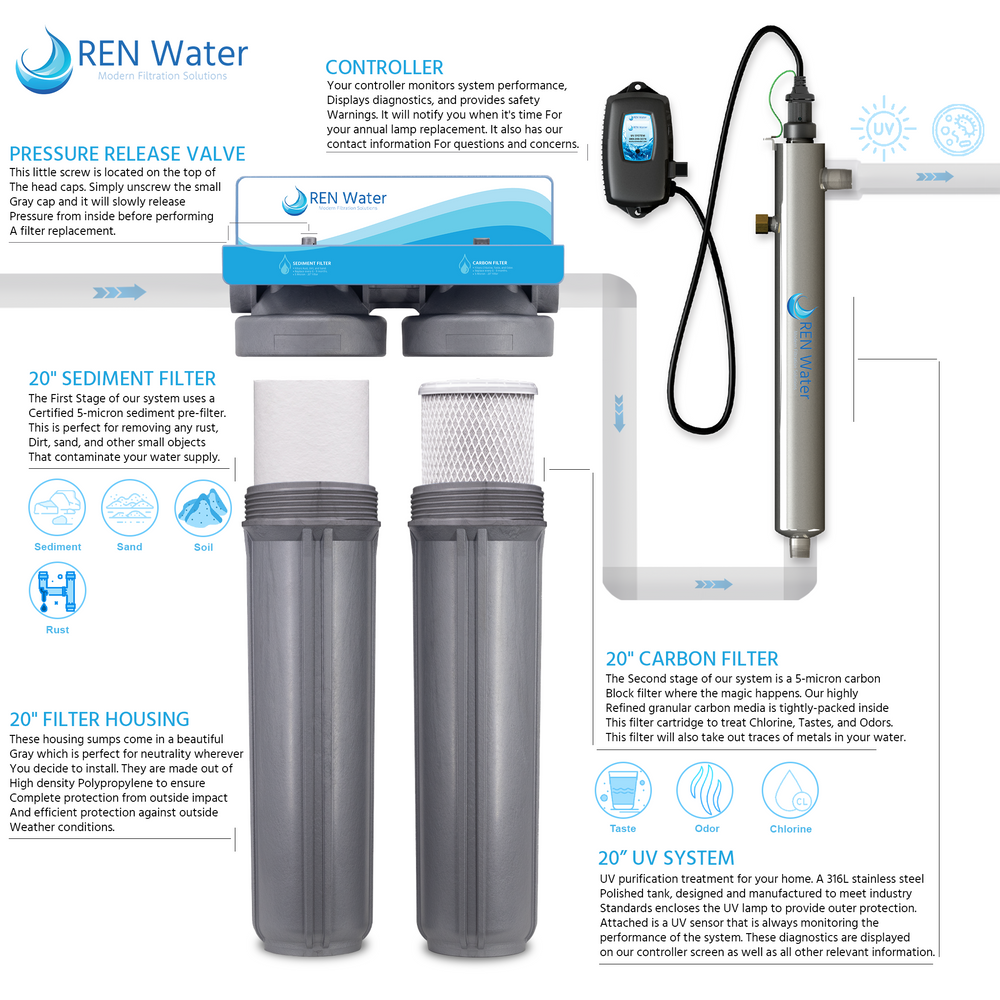How to Enhance Your Water Quality?
Water, making up almost 60% of our bodies, is indispensable for fundamental bodily processes like digestion, circulation, and nutrient transport. Beyond its biological significance, water is intricately woven into the fabric of our daily lives, playing a vital role in breaking down waste and maintaining cleanliness, crucial for the survival of both plants and animals.
In the United States, where the safety of our water supply is paramount, chlorination emerges as the primary method. Praised for its simplicity and remarkable effectiveness in preventing waterborne illnesses, chlorination has been a key contributor to the near absence of waterborne epidemics. Yet, as we explore the nuances of water treatment practices, the story takes a turn. Despite its commendable effectiveness, chlorination introduces disinfection by-products like trihalomethanes (THMs), promoting questions about potential long-term health effects.
This realization leads to a reassessment of water disinfection techniques and a search for alternatives that balance safety and effectiveness. Concern over disinfection by-products, particularly their possible carcinogenic potential, draws attention to the fact that we are exposed to them on a daily basis. Every water-related activity, including cooking, cleaning, and bathing, involves coming into contact with these byproducts. The subject of this article emphasizes the necessity of clean and safe water in our daily lives while navigating the difficult balancing act between the effectiveness of chlorination and the possible health risks associated with its byproducts.
What are the drawbacks associated with chlorine?

Long-term exposure to chlorine has been associated with negative health effects, even though it is an effective disinfectant for water. Chlorine in drinking water has been linked in government studies to skin irritations, respiratory problems, and possible long-term risks. It is essential for consumers to be aware of these risks in order to make well-informed decisions regarding their water consumption practices.
1. Respiratory Issues:
Prolonged exposure to chlorine in drinking water has been identified in government studies as a potential contributor to respiratory problems. Inhalation of chlorine vapors, particularly during activities like showering, may lead to irritation of the respiratory system.
2. Skin Irritations:
Chlorine's presence in water has been associated with skin-related concerns. Bathing or showering in chlorinated water may result in skin irritations, dryness, and exacerbation of existing skin conditions. The chlorine content can strip away natural oils, leaving the skin more susceptible to irritation.
3. Long-Term Risks:
Government research highlights potential long-term risks associated with persistent exposure to chlorine. While the immediate effects may manifest as respiratory issues and skin irritations, there is concern about chronic exposure contributing to more serious health conditions over time.
4. Byproducts Formation:
Chlorination of water can lead to the formation of disinfection by-products (DBPs), such as trihalomethanes (THMs). These by-products, when present in drinking water, have been a subject of health concerns. Some studies suggest a potential link between exposure to THMs and adverse health outcomes, including certain cancers.
5. Vulnerable Populations:
Certain demographic groups, including pregnant women, infants, and individuals with pre-existing health conditions, may be more susceptible to the negative effects of chlorine exposure. Special attention should be given to these groups when considering the potential health impacts of chlorinated water.
6. Impact on Allergies:
Emerging research suggests a correlation between chlorine exposure and the development of allergies. Prolonged exposure to chlorine in water may contribute to the exacerbation of allergy symptoms and increase susceptibility to allergic reactions.
7. Digestive System Sensitivity:
Some individuals may experience sensitivity in the digestive system due to consuming water with elevated chlorine levels. This can manifest as stomach discomfort, nausea, or other gastrointestinal issues.
8. Cumulative Health Effects:
The cumulative nature of chlorine exposure raises concerns about its potential contribution to overall health issues over time. While individual reactions may vary, long-term exposure underscores the importance of considering alternative water treatment methods to mitigate potential health risks.
Removing Chlorine from Water

There are numerous benefits to removing chlorine from water, including improved water quality and associated health benefits. Water without chlorine not only tastes and smells better but also enhances the overall experience for those with sensitive palates. It is ideal for cooking and bathing since it lacks harsh chemicals that could harm the skin or alter the flavor of food. Efficient techniques for eliminating chlorine from water not only enhance water safety but also elevate the standard of living.
Activated Carbon Filtration

Activated carbon filtration employs the adsorption principle to efficiently remove chlorine from water, resulting in better taste and odor. This method utilizes the porous structure of activated carbon, providing a vast surface area with various interaction sites. As water containing impurities, such as chlorine, passes through activated carbon, attractive forces cause the impurity molecules to adhere to the carbon surface. This adhesion forms a monolayer of adsorbed molecules on the carbon, achieving equilibrium. Renwater's sophisticated filtration systems are carefully designed to optimize the adsorption process, ensuring the complete removal of chlorine. Our commitment to water quality is demonstrated by our focus on modern technology and activated carbon to deliver water that meets the highest purity standards.
While UV light and chemical disinfection agents are other methods for eliminating chlorine, Renwater's activated carbon filtration stands out for its effectiveness and commitment to water quality.
Sodium bisulfite and sulfur dioxide neutralize chlorine through chemical reactions. However, among these options, activated carbon filtration emerges as the superior choice. Its exceptional adsorptive qualities make it highly effective at absorbing and eliminating chlorine, leading to a significant improvement in taste and odor.
Activated carbon is a versatile material with the capability to remove a broad spectrum of contaminants, extending beyond chlorine. Widely regarded as the gold standard in comprehensive water treatment, activated carbon filtration stands out for its affordability, dependability, and efficiency.
Consult with Our Professionals

Choosing the right water filtration system for your home can be a bit overwhelming. If you're unsure about where to start or which system is best for you, our friendly team of experts is here to help! We specialize in modern whole-house water filtration, and we understand the importance of having clean and pure water.
Whether you're concerned about chlorine removal or looking for effective solutions, our professionals are well-versed in the benefits of activated carbon filtration, UV Systems, and all modern whole-house filtration systems.
Don't hesitate to reach us out – we'll assess your specific needs and recommend the most suitable system to ensure your home gets the best water quality possible. Trust us to provide friendly, knowledgeable, and reliable guidance for all of your water filtration concerns!
Don't hesitate to reach us out – we'll assess your specific needs and recommend the most suitable system to ensure your home gets the best water quality possible. Trust us to provide friendly, knowledgeable, and reliable guidance for all of your water filtration concerns!
CALL US NOW!
RENWater's Water Filtration Systems
Now that you have a better understanding of how to choose the right water filtration system, take a look at our selection of high-quality products below:
By adhering to these guidelines and taking into account your unique requirements, you can make a confident choice in our modern whole-house water filtration systems that ensures clean, healthy, safe drinking water for you and your family in the years ahead.



